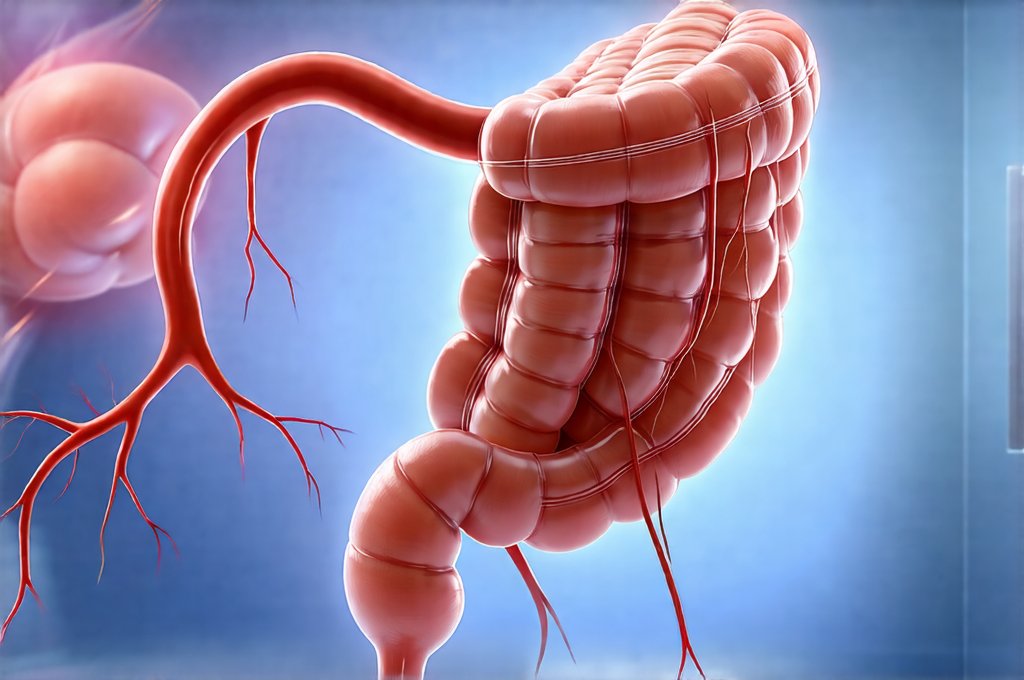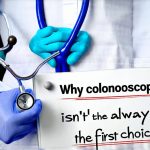Colonoscopies are generally recommended as routine screening for colorectal cancer beginning at age 45, but many factors can influence whether you might need one sooner than that guideline suggests. It’s crucial to understand that this isn’t about alarming anyone; it’s about being proactive and informed regarding your digestive health. Ignoring potential warning signs or dismissing subtle changes in bowel habits could delay diagnosis and treatment, potentially impacting outcomes. A colonoscopy is the gold standard for detecting colorectal cancer and precancerous polyps, offering not just diagnostic clarity but also the ability to remove problematic growths during the procedure itself.
This article aims to illuminate the various indicators that might prompt a discussion with your healthcare provider about potentially moving up your first (or next) colonoscopy. We’ll explore both specific symptoms to be aware of and relevant risk factors that could necessitate earlier or more frequent screening. Remember, this information is for educational purposes only and should not replace professional medical advice; it’s intended to empower you to have a productive conversation with your doctor about what’s right for you. Understanding these signs can contribute to early detection and ultimately, better health.
Recognizing Changes in Your Bowel Habits
Changes in bowel habits are frequently the first signal that something might be amiss, though they aren’t always indicative of cancer – often, it’s a less serious issue like irritable bowel syndrome or dietary changes. However, persistent or significant alterations should never be ignored. These changes can manifest in several ways and require medical evaluation to determine their cause. It’s important to differentiate between temporary fluctuations and consistent deviations from your normal pattern.
Consider these key indicators: – A persistent change in the consistency of your stool (e.g., going from consistently solid stools to frequent diarrhea or constipation). – Blood in your stool, whether it’s bright red or dark and tarry (melena). Dark, tarry stools often indicate bleeding higher up in the digestive tract. – Narrower-than-usual stools; this could suggest an obstruction within the colon. – A feeling of incomplete evacuation, meaning you feel like you still need to go even after having a bowel movement. These changes should be brought to your doctor’s attention promptly.
It’s also important to note that ignoring these symptoms won’t make them disappear; in fact, delaying evaluation can allow potentially serious conditions to progress undetected. Many people hesitate due to embarrassment or fear of what the examination might reveal, but early detection is always preferable, and colonoscopies have become increasingly comfortable procedures with advancements in preparation techniques and sedation options. Your doctor is there to help, not to judge. If you are experiencing changes alongside bloating, understanding why you may feel bloated can be a useful first step.
Family History and Genetic Predisposition
Your family history plays a significant role in determining your risk for colorectal cancer and, consequently, the timing of your first colonoscopy. If you have a close relative (parent, sibling, or child) who has been diagnosed with colorectal cancer or advanced polyps, your risk is substantially increased. The younger the age at diagnosis for that family member, the greater your personal risk. This isn’t simply about inheriting a predisposition to cancer; it could also point to inherited genetic syndromes that significantly elevate risk.
Specifically, individuals with a family history of Lynch syndrome (also known as hereditary nonpolyposis colorectal cancer or HNPCC) should begin screening much earlier than the standard age 45. Lynch Syndrome is caused by mutations in DNA mismatch repair genes and dramatically increases the lifetime risk of not only colorectal cancer but also other cancers such as endometrial, ovarian, and stomach cancers. Genetic testing can identify these mutations, allowing for targeted surveillance strategies. Similarly, those with a family history of familial adenomatous polyposis (FAP) are at very high risk and require specialized colonoscopic surveillance beginning in adolescence.
Beyond documented diagnoses, knowing the details of your family’s medical history is vital. Even if no one has been officially diagnosed with colorectal cancer, understanding if relatives have had numerous polyps removed during colonoscopies is important information to share with your doctor. This suggests a potential underlying predisposition that warrants closer monitoring and potentially earlier screening for you. It’s often helpful to proactively gather this family medical information before your appointments.
Understanding Inflammatory Bowel Disease (IBD)
Individuals diagnosed with inflammatory bowel disease, including Crohn’s disease or ulcerative colitis, have an increased risk of developing colorectal cancer. Chronic inflammation within the colon can lead to changes in the cells that over time may become cancerous. The duration and extent of the IBD play a role; those with long-standing, extensive colitis are at higher risk than those with milder forms of Crohn’s disease affecting other parts of the digestive system.
Because of this elevated risk, patients with IBD typically require more frequent colonoscopies – often beginning around 8-10 years after diagnosis – even if they have no specific symptoms related to cancer. These screenings are often referred to as surveillance colonoscopies and involve taking multiple biopsies throughout the colon to detect any early signs of dysplasia (precancerous changes). It’s essential that individuals with IBD adhere to their gastroenterologist’s recommended screening schedule. If you experience a sore throat alongside digestive issues, it is important to rule out other causes like a sore throat without heartburn.
Furthermore, managing your IBD effectively can help reduce your cancer risk. This includes adhering to prescribed medications, attending regular follow-up appointments, and making lifestyle modifications such as quitting smoking and maintaining a healthy diet. Regular surveillance allows for early detection of dysplasia, which can often be treated with endoscopic removal or localized surgery, preventing progression to full-blown cancer.
Previous Polyps and Adenomas
If you’ve had polyps removed during a previous colonoscopy, your risk of developing colorectal cancer is higher than someone who has never had them. This is especially true if those polyps were adenomatous (precancerous) rather than hyperplastic (generally benign). The size and number of the adenomas also influence your future screening schedule. Larger polyps or multiple polyps indicate a greater risk of recurrence and potentially missed lesions.
Your doctor will determine an appropriate surveillance interval based on the findings from your previous colonoscopy. For example, if you had several large adenomas removed, you might be advised to have another colonoscopy within three to five years. Conversely, if you only had a few small hyperplastic polyps, your next screening could potentially follow the standard age 45 guideline. It’s critical to understand and follow these recommendations, as they are tailored to your individual risk profile.
Remember that even after polyp removal, new polyps can develop over time. Regular surveillance allows for the detection and removal of these newly formed growths, further reducing your risk of colorectal cancer. The goal is to stay ahead of potential problems and maintain a proactive approach to your digestive health. For better gut health, consider if you need a gut detox.
Chronic Abdominal Discomfort or Pain
While many conditions can cause abdominal discomfort or pain, persistent and unexplained symptoms should be investigated by a healthcare professional. This isn’t about self-diagnosing; it’s about recognizing when something feels off and seeking medical attention. Symptoms like chronic bloating, cramping, gas, or abdominal pain that doesn’t respond to typical remedies could warrant further evaluation, potentially including a colonoscopy.
It’s important to differentiate between occasional discomfort and persistent symptoms that interfere with your daily life. Changes in bowel habits often accompany these types of abdominal issues, creating a complex picture that requires careful assessment. Your doctor will likely ask about the location, severity, and duration of your pain, as well as any associated symptoms. They may also perform other tests, such as blood work or stool analysis, to help narrow down the potential causes.
A colonoscopy can help rule out structural abnormalities within the colon, such as polyps, tumors, or inflammation. Even if no cancer is found, identifying and addressing underlying issues like IBD or diverticulitis can improve your overall health and well-being. Don’t hesitate to advocate for yourself and request further investigation if you have concerns about persistent abdominal discomfort or pain. Understanding how your gut functions is important; consider your gut microbiome needs a reset if experiencing ongoing issues. It’s also worth considering whether you need digestive enzyme supplements.
Disclaimer: This article provides general information only and does not constitute medical advice. It is essential to consult with a qualified healthcare professional for any health concerns or before making any decisions related to your health or treatment.


















